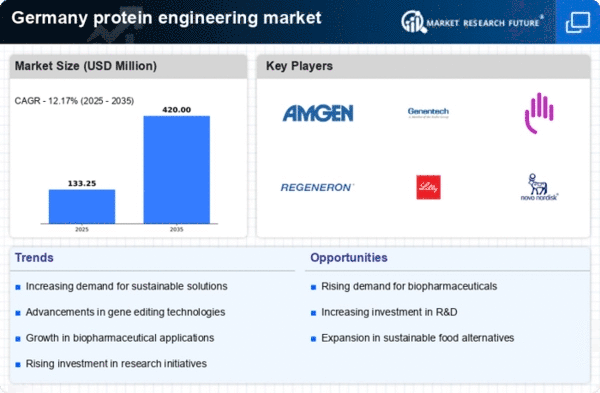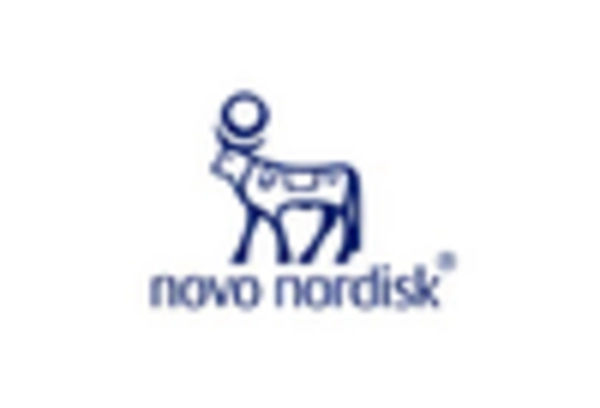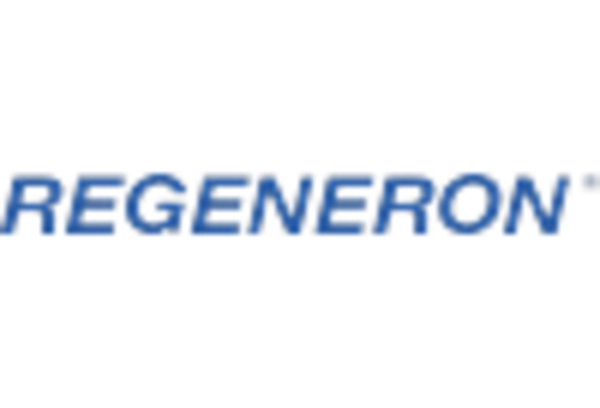Advancements in Synthetic Biology
Advancements in synthetic biology are significantly influencing the protein engineering market in Germany. The integration of synthetic biology techniques allows for the precise manipulation of biological systems, leading to the creation of tailored proteins for various applications. In recent years, the market has seen a growth rate of around 15% annually, driven by innovations in gene editing technologies such as CRISPR. These advancements enable researchers to engineer proteins with specific functions, which is crucial for applications in therapeutics, agriculture, and industrial biotechnology. Consequently, the protein engineering market is poised for continued expansion as these technologies become more accessible and cost-effective.
Rising Demand for Biopharmaceuticals
The protein engineering market in Germany is experiencing a significant increase in demand for biopharmaceuticals. This trend is driven by the increasing prevalence of chronic diseases and the need for innovative therapies. In 2025, the biopharmaceutical sector is projected to account for approximately 30% of the total pharmaceutical market in Germany, highlighting the critical role of protein engineering in drug development. The ability to design and produce therapeutic proteins with enhanced efficacy and reduced side effects is becoming paramount. As a result, companies are investing heavily in research and development to create novel protein-based drugs, thereby propelling the growth of the protein engineering market.
Growing Interest in Personalized Medicine
The growing interest in personalized medicine is reshaping the landscape of the protein engineering market in Germany. As healthcare shifts towards more individualized treatment approaches, the demand for engineered proteins that cater to specific patient needs is increasing. In 2025, it is estimated that personalized medicine will represent approximately 25% of the total healthcare expenditure in Germany. This shift necessitates the development of proteins that can be tailored to the genetic profiles of patients, thereby enhancing treatment efficacy. The protein engineering market is thus likely to benefit from this trend, as companies focus on creating customized therapeutic proteins.
Government Support and Funding Initiatives
Government support and funding initiatives play a pivotal role in shaping the protein engineering market in Germany. The German government has launched several programs aimed at fostering innovation in biotechnology, with a focus on protein engineering. In 2025, public funding for biotechnology research is expected to exceed €500 million, reflecting the government's commitment to advancing this sector. Such financial backing not only encourages academic research but also stimulates collaboration between public institutions and private companies. This synergy is likely to enhance the development of novel protein-based solutions, thereby driving growth in the protein engineering market.
Emerging Applications in Industrial Biotechnology
Emerging applications in industrial biotechnology are contributing to the expansion of the protein engineering market in Germany. Industries such as food, agriculture, and biofuels are increasingly utilizing engineered proteins to improve efficiency and sustainability. For instance, the use of enzymes in food processing has been shown to enhance product quality while reducing waste. In 2025, the industrial biotechnology sector is projected to grow by 10%, with protein engineering playing a crucial role in this transformation. As companies seek to optimize production processes and develop sustainable solutions, the protein engineering market is expected to thrive.
















